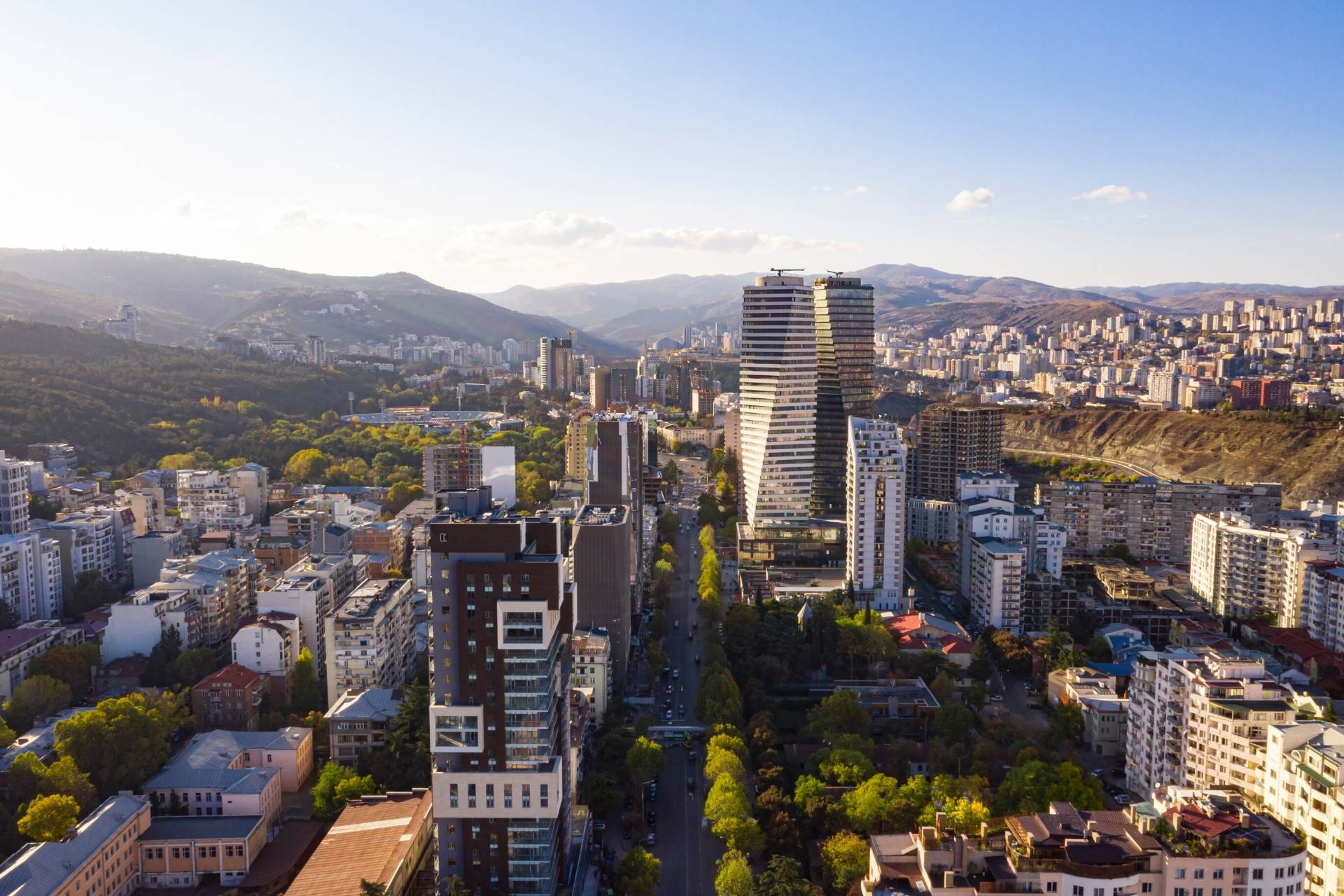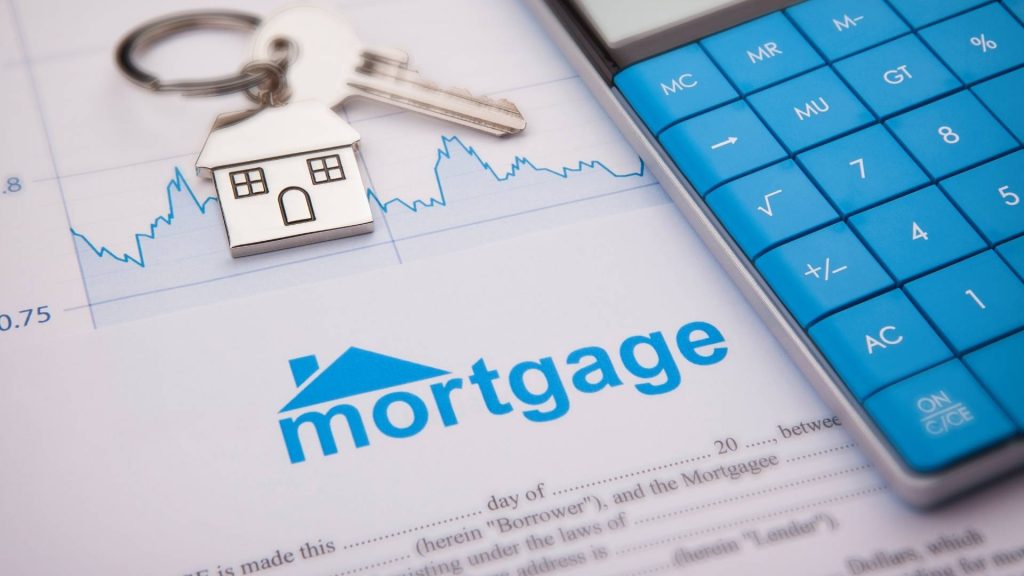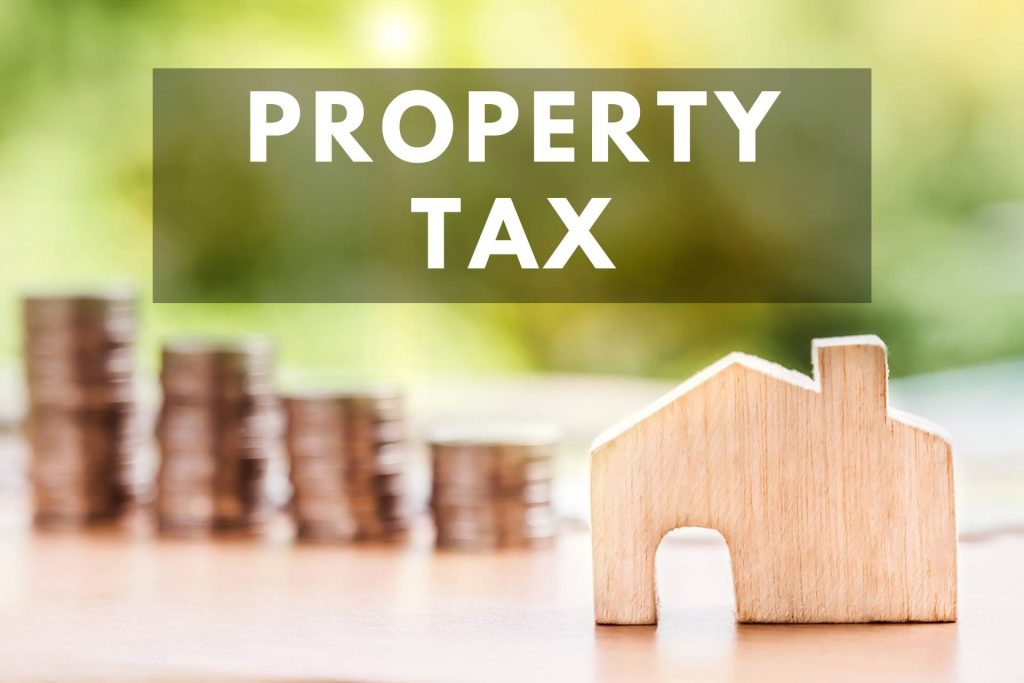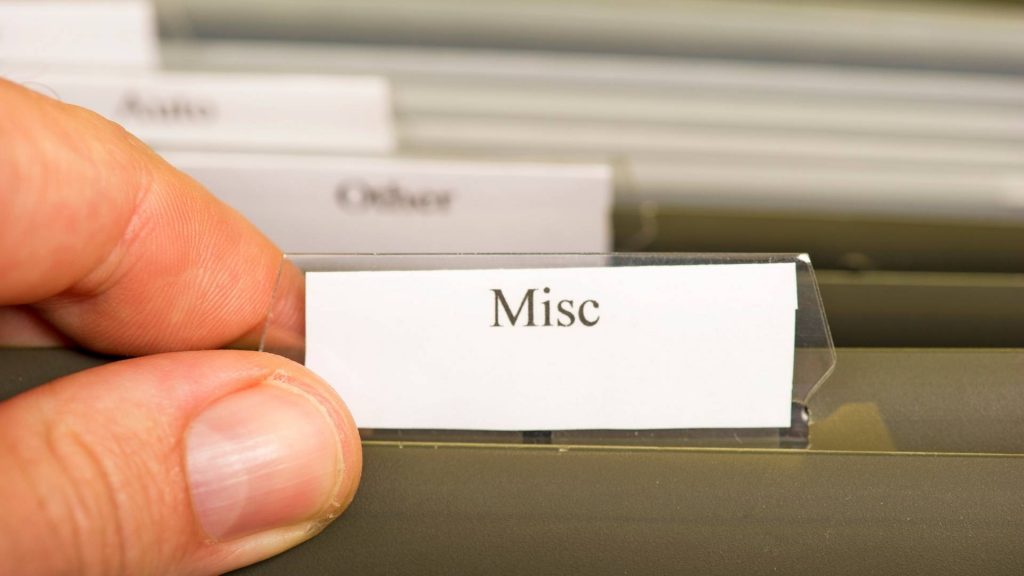If you want to buy real estate in Georgia, you need to make sure you are familiar with all the details affecting this purchase, from the scams to avoid, to mortgages, due diligence and more.
In this article, we cover many of the most basic questions that real estate buyers ask, as well as some lesser known questions that can make a real difference.
Georgian Real Estate Basics
What Is Immovable Property? Can I Buy Immovable Property In Georgia As A Non-Resident?
Immovable property includes a “plot of land with its subsoil minerals, the plants growing on the land, and buildings and other structures firmly attached to the land.” (Article 149)
Foreign citizens are allowed to acquire immovable property with the exception of agricultural land as outlined below. Furthermore, foreign citizens can acquire state property as well – with the exception of state-owned agricultural land plots (Article 3.1).
What Is Agricultural Land? Can I Buy Agricultural Land In Georgia As A Non Citizen?
Agricultural land – “land area of either a pasture, a hayfield, arable land (including the land under perennial crops) or a homestead land category, which is used or may be used for agricultural purposes with or without buildings and structures on it.” (Article 3.a)
In most cases, non-citizens cannot purchase agricultural land. There are some limited workarounds, but they are quite complex. Also there are exceptions, such as when a foreign citizen inherits the land (Article 4.2.a).
The most important practical consideration is that agricultural zoning may be applied to land in places you would not expect. Many areas in towns and villages, and even parts of Tbilisi (the capital of Georgia), are zoned agricultural. Getting the zoning changed can be a long and difficult process. Because of this, most foreigners choose to purchase non-agricultural land rather than to pursue rezoning.
Money & Mortgages
Can I Get A Mortgage In Georgia As A Foreigner? What Mortgage Rates Are Available?
Commercial banks are able to set their own policies regarding mortgage loans for foreign citizens.
Both Bank of Georgia and TBC, among others, offer mortgage options to foreigners. Upon approval of your financial status, typical mortgages for foreigners require a high initial down payment (normally at least 40%) as well as a relatively short term (typically a maximum of 10 years) at an interest rate of approx. 6% and up. Note that most loans are taken in USD. For loans in the national currency (GEL), you can expect interest rates upwards of 12% per annum.
These numbers can vary, but the key takeaway is that while you might qualify for a mortgage, the conditions that foreigners receive are sometimes different from those for citizens of Georgia. Speak to your bank to find out what they can offer you.
If I Don’t Get A Mortgage, Am I Expected To Pay 100% Of The Cost Of The Purchase In One Lump Sum?
This is up to the seller and what you negotiate together.
If the property is being bought from a developer, they might offer payment by installments. Usually, a down-payment of 30-50% of the purchase price is required. Interest rates may or may not apply. The duration of the “loan” varies, but sometimes developers require the property to be fully paid for before construction is finalized. Usually, the buyer will be registered as a future owner of the property, and will be registered as the owner only after the price is fully paid.
If the property is being bought from a private individual, it can be difficult to find a seller that would agree to payment by installments. But the law does not prohibit such transactions.
Can I Buy Property In A Foreign Currency?
Georgian Lari (GEL) is the only legal tender on the territory of Georgia. (Article 34.2) This means that the payment should take place in GEL. Nevertheless, parties are entitled to determine that the price will be an equivalent of “X” USD/EUR/GBP (or other foreign currency), paid in GEL. However, purchasing in crypto is also legal, though the process has some complexities it’s worth understanding first.
In such cases, an agreement on how the exchange rate will be calculated should be made. Usually, parties agree that the official exchange rate determined by the National Bank of Georgia on the date of payment will apply.
Please also note that real estate prices are usually advertised in USD.
How Do I Get The Funds To Georgia To Make The Purchase? What Problems Might I Encounter Getting Funds To Georgia?
You can open a personal bank account in Georgia using a foreign passport or Georgian ID card.
After opening a Georgian bank account, you can transfer the funds from a foreign bank account. Due to measures directed toward the prevention of money laundering and the financing of terrorism, a sizeable transfer might be frozen and you will need to provide relevant documentation to the bank to show the legitimacy of the funds in order for the transfer to be released.
Since it is difficult to predict when the transferred funds will arrive in a Georgian bank account, it is not always practical to transfer the funds from a foreign bank account directly to the seller’s Georgian bank account.
Do I Need An Estate Agent? What Percentage Fees Will Real Estate Agents Take?
Most real estate agents charge 3% of the transaction value. The percentage is subject to negotiations. The fee is usually paid by the seller.
Many sellers and developers will sell directly to you and no agent is needed. Having your own legal representation while working directly with the seller is sufficient in most cases.
Agents who are handling a sale will want their cut, so if a seller has already engaged them and you have found the property via that agent, you are most likely going to have to use them for at least part of the process, even if you don’t find the agent to be helpful or competent. If you want a Real Estate Purchase Expert who will represent your interests, rather than the interests of the seller, check out ExpatHub’s Real Estate Purchase Assistance services.
Legal Process & Considerations
What Documentation/Permits Must I Provide In Order To Close A Sale?
To complete a purchase, the following is necessary:
- Identification document (passport or Georgian ID card; if using a foreign passport, a translated and notarized copy may be required).
- The real estate purchase agreement which is to be signed in the presence of the relevant authority or a notary.
- Payment of relevant administrative and notary fees.
- The relevant authorities are entitled to request additional information and/or documents.
No special permit is required to make the purchase, as a non-citizen.
ExpatHub specializes in bilingual purchase & pre-purchase agreements, relevant legal due diligence, and other processes related to purchasing real estate.
If you intend to buy property and want all the legal elements handled, or are interested in Real Estate Purchase Assistance from our team, then book a consultation with one of our advisers.
What Language Should The Contract Be In?
A purchase agreement should be drafted in Georgian. If a party to the agreement does not understand Georgian, the agreement must also be translated.
In many cases, a bilingual agreement may already have been created by the seller. If so, you have no guarantee that the seller has engaged a translator who is accurate. It is always possible that key terms in the English language version do not match the legally binding Georgian version. This can lead to significant problems once the agreement is signed.
As part of our legal processes, ExpatHub can check the accuracy of the translation so you have no surprises. We also identify clauses that should be of concern, so you can request revisions by the seller. Additionally, we can send our lawyers to negotiate revisions and any other part of the purchase process. Get more information about our real estate legal services here.
What If I Buy Property And There Is Something Seriously Wrong With It? Or Debts Owed? What Legal Recourse Do I Have Against The Seller?
First and foremost, try to prevent a dispute in the first place. It is best practice to be diligent and inspect the property thoroughly, as well as specify the description and condition of the property in the purchase agreement. This includes describing physical characteristics as well as the legal condition (mortgage, liens, third party claims, and other restrictions).
In case the transferred property does not correspond to the description and condition agreed under the agreement, the property will be labeled “non-conforming” (meaning there is material and/or legal defect). When the property is non-conforming, you are entitled to relief. Depending on the agreement, you can be entitled to:
- Request that the seller fixes the non-conformity within a reasonable time.
- Request payment of compensation for damages incurred by you as a result of such non-conformity (the amount that would be required to make the property conforming).
- Request the reduction of price (by the amount that would be required to make the property conforming).
- Request the termination of the agreement and restitution (i.e., return to the situation that was before the conclusion of the agreement).
Note that:
- The seller is prohibited from hiding material information about the condition of the property.
- The buyer cannot request relief for a defect that they were aware of.
- The dispute can be negotiated, mediated, arbitrated, or litigated.
If you purchase without due diligence being performed, you may not be aware of debts attached to the property. Do not expect the seller to necessarily disclose their debts. Upon transfer of title, these debts will be transferred to you whether you are aware of them or not. Our lawyers will check for potential debts, among many other things, during our due diligence process.
How Do I Get a Real Estate Inspection To Make Sure It Is Safe And Well Built?
Real estate Inspection as a step before purchasing is not common in Georgia and there is no code of practice or accredited body governing real estate inspection. You can contract an independent expert who will accompany you and inspect the property. Depending on what you want to inspect, you will need an expert in architectural, construction, or electrical engineering.
ExpatHub now offers a real estate inspection service, provided by our partner CheckIt.Ge. We’ll provide a comprehensive report on every aspect of the real estate you wish to purchase so you can make an informed decision on moving forward.
A property inspection is included in ExpatHub’s Real Estate Purchase Assistance Service.
What Legal Differences Are There From Buying Finished Property And Off-plan Property?
When you buy a finished property, you conclude a real estate purchase agreement, and you are registered as the owner of the property. When you buy an off-plan property, you conclude a pre-purchase agreement, since it is not possible to conclude a real estate purchase agreement on a property that does not yet exist.
Buying an off-plan property is associated with a higher risk, since the developer might not fulfill their obligations. This breach by the developer may be intentional (perhaps they never intended to start and/or finish the construction works) or unintentional (i.e., due to poor planning and/or other reasons, the developer went bankrupt or is unable to complete the construction).
In case a developer breaches their obligations, there is not much you as a buyer can do. Therefore, it is important that you find a trustworthy developer, with a good track record and reputation.
Can I Purchase Real Estate Remotely?
Yes, if you as a principal grant someone else the necessary powers under a Power of Attorney.
- If you are a foreign citizen who does not have a Georgian residence card, a Power of Attorney should be executed by a notary in Georgia. Alternatively, you as the principal are entitled to issue a Power of Attorney in a foreign country, legalize/apostille it in that country, and then send it to your trustee in Georgia, who will translate and notarize it in Georgia.
- If you are a Georgian citizen or a foreign citizen who has a Georgian residence card, a Power of Attorney can be executed by a notary in Georgia while you are physically present, or remotely from abroad. This can be done through a video call with the Georgian notary. Also, two witnesses (who will identify you) and a third person (who will sign on your behalf) will need to be present during the call. None of the three persons should have an interest in the execution of the Power of Attorney. The trustee, as well as the three persons present during the call, do not need to be Georgian citizens or have a Georgian residency card.
ExpatHub’s legal team can provide you with Power of Attorney documents to be used for any situation, and we can also be your legal representative during a property purchase. Contact us for more details.
See our real estate pricing & packages here.
If you don’t need legal advise but general real estate purchasing info, you can book a free consultation with our real estate advisers.
Deciding which services you need or don’t need can be quite complex. We’ve broken down every service into a comprehensive guide here.
Property & Capital Gains Taxes
What Taxes Are Levied On Residential Property At Time Of Purchase?
At the moment of purchase of residential property, you, as a buyer, will not be subject to any taxes.
What Taxes Are Levied If I Choose To Sell The Residential Property?
Generally, capital gains from the sale of residential property are subject to 5% personal income tax. However, if you have owned the property in question for more than 2 years prior to the sale, your income will be tax exempt.
What Taxes Are Due On Residential Property I Own? How/When Are Those Taxes Paid?
You will have to pay annual property tax on the residential property you own, provided your annual worldwide household income exceeds 40,000 GEL. The tax rates are set as follows:
- From 0.05% to 0.2% – If your annual income in the preceding year is between 40,000-100,000 GEL;
- From 0.8% to 1% – If your annual income in the preceding year exceeds 100,000 GEL.
The deadline for filing is no later than November 1st each year and payment of property tax is no later than 15 November of the year following the year concerned (e.g., if you have owned property throughout 2022, you will have to pay 2022 property tax by November 15th 2023, prorated based on the number of months owned in the reporting year). Filing is done electronically, via the Revenue Service web-portal.
If the property is owned by more than one party, property taxation is a little more complicated and it’s worth checking the situation with a tax adviser.
What Taxes Will I Pay If I Rent Out The Property?
Normally, rental income is subject to a 20% personal income tax. However, if you rent out your property strictly for residential purposes, you can register at the landlord registry and start paying 5% personal income tax on your rental income. Deductions, in this case, won’t be allowed.
ExpatHub can assist on any and all tax matters in Georgia, including helping you file property and rental taxes. Book a free consultation with a tax adviser.
Miscellaneous
What About Real Estate Insurance?
There are several insurers on the Georgian market. Their terms and prices vary. You can insure the frame (carcass), interior (renovations), rooms or parts of the property, integral design elements (including interior trim and engineering equipment), building and residential engineering equipment (including sanitary-technical and heating equipment, gas/electric heaters, electronic meters, electrical wiring, television and telephone cables), household items (including furniture, technology, and appliances), and your neighbor’s property (from damage originating from your property).
The insurance may cover the following damages: water leakage coming from a neighbor, the unexpected malfunction of water and/or sewage piping systems, the unexpected malfunction of electrical and/or heating systems, fire and explosions, natural disasters (including earthquakes, lightning strikes, storms, hurricanes/tornados, hail, rockfall, snow, or flooding), transport/vehicle accidents, the falling of an aircraft or its parts, theft, burglary, robbery, & vandalism. It is also possible to insure for damage to rented property when you are renting.
Annual prices of insurance usually start from 1.50 GEL per m2.
What Is The Difference Between Black/White/Green Frames?
There is no uniform definition of black, white, or green frames in Georgia. Each seller has their own definition. Therefore, it is imperative that the description is documented in as much detail as possible in any agreement.
The definitions vary but, in general:
- Black frame typically refers to a “bare bones” property that has a metal entrance door, windows, concrete walls and basic communication lines (electricity, gas, water) brought up to the main entrance door.
- White frame typically refers to property that has a metal entrance door and windows, plastered walls, plastered internal partitions according to the project, straightened flooring, plasterboard ceiling, main vertical water and sewerage systems fully installed in the apartment, as well as central heating pipes and other utility connections – wiring, gas pipes, etc.
- Green frame is typically the next level up from a white frame, where internal fittings have been completed to a livable standard, walls are painted, and permanent furnishings are in place, such as kitchen & bathroom installations. It might potentially be a fully finished apartment only lacking moveable furniture. However, the term “green frame” is disputed and full confirmation should be requested from the seller as to what they mean by it.
Because the definitions of the above can vary, if you are buying off-plan, you should make sure that the exact inclusions and exclusions are defined within your pre-purchase agreement.
How Do I Get Legal Residency Through Purchase Of Property?
Ownership of property with an appraised value more than the equivalent of $100,000 USD in GEL is grounds for granting a “short-term residence permit”. The short-term residence permit is granted to the owner of the property and his/her family members (i.e., spouse/children. As of May 12th, 2021, parents of the owner no longer qualify as family members.). The duration of the short-term residence permit is for no more than 1 year, but it can be renewed annually so long as the ownership of the property is maintained. If those requirements cease to be met, the SDA can revoke your residency.
Ownership of property that’s valued by an accredited appraiser at more than the equivalent of 300,000 USD in GEL is grounds for granting an “investment residence permit” (Article 15.h). The investment residence permit is granted to the owner of the property and his/her family members (i.e., spouse/underaged child). The duration of the investment residence permit can be up to 5 years.
Holding an investment residence permit for 5 years can become grounds for granting a permanent investment residence permit (article 15.k).
When the ownership of property becomes grounds for granting a residence permit, it is imperative that the foreign citizen retains ownership of the property, or of a portfolio of properties, with a total appraised value exceeding 300,000 USD.
ExpatHub can assist with your residency application. Book a free consultation.
Get Assistance With Your Property Purchase
If you plan to purchase property in Georgia, our legal team can assist with both the legal side of the purchase (purchase agreements, due diligence, etc.) as well as full Real Estate Purchase Assistance (property concierge service), and remote purchase assistance.
Most importantly for foreigners, we thoroughly check the English translation of the original Georgian purchase agreement (when provided by the seller), identify clauses which may be of concern, and assist with negotiations with the seller when needed.
See our pricing details for more information on these services.
If you are looking for real estate purchase information and advice, rather than legal assistance:





